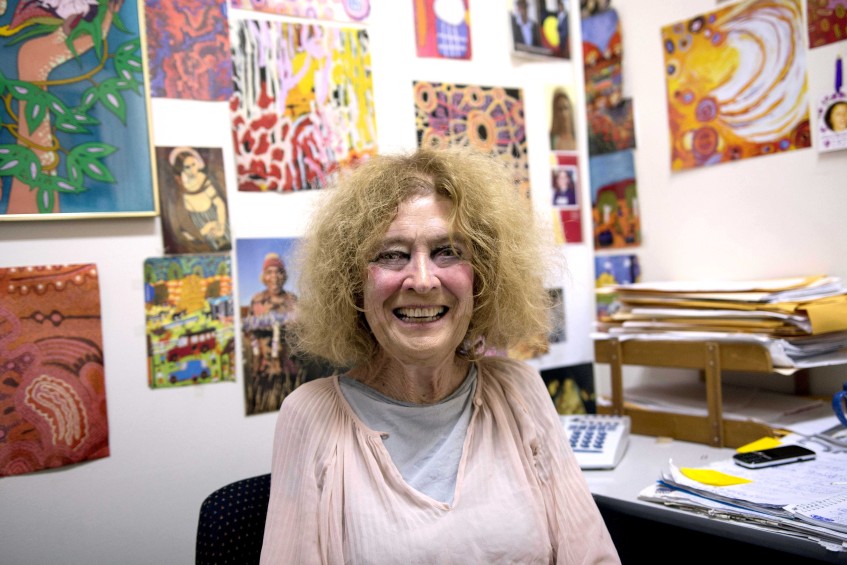Firsthand experience encourages WA Senior Australian of the Year nominee to make a difference

Dr Buchanan said her experiences as a child inspired her to go above and beyond in service of the Aboriginal people. Photo: Josh Low
By Josh Low
Having been involved with Daydawn Advocacy Centre for some 10 years, Dr Betsy Buchanan was among the four nominees for the 2018 Western Australia Senior Australian of the Year Award.
Nominated in recognition of her years of voluntary service in legal and human rights work on behalf of the Aboriginal community, Dr Buchanan sat down with The eRecord to discuss her story.
Growing up in a country town in the Great Southern as a firsthand witness to the difficulties suffered by the displaced Noongar people was behind Dr Buchanan’s motivation to make a difference in the community.
Dr Buchanan explained that her family’s property was located next to a reserve and a mission, and remembers the living conditions of the people she was able to develop close relationships with.
“The displaced Noongar people were herded onto a reserve adjacent to our property and as a child, I remember being driven past the reserve all the time.
“The conditions there were really shocking; no running water and no electricity in this terribly wealthy district, along with a lot of violence due to overcrowding and the trauma of being shifted off their land,” she said.
“As a child I was witness to grave injustices that were happening right in front of me.”
Dr Buchanan added that the general racism in the town at the time had been quite extreme, and credited her father for being one of her inspirations from an early age.
“People weren’t allowed to drink in the hotel, and a lot of the Noongar men who had been ex-servicemen and quite courageous soldiers were not allowed to enter the town after a certain hour, weren’t allowed to use facilities and didn’t get recognised for their service to the nation on ANZAC Day,” she said.
“They had gone to war and fought alongside all the white soldiers, airmen and navy men but when they returned from war, they were herded back onto the reserve.
“My family were privileged as my father was a member of parliament and a war hero, but he instilled in me the importance of recognising the contribution of the Noongar people as part of our legacy, because they had fought overseas for the country as he had.”
She said her experiences as a child compelled her to do something above and beyond the norm.
“I’ve always wanted to work voluntarily because I saw how they worked for people and got almost no pay throughout the district that saw them as undeserving of equal pay.
“So I always thought that was one way I could be a witness; that it was possible to do something not for monetary gain,” she said.
Dr Buchanan said that at the heart of the work she does lies in the personhood and message of Jesus Christ, as found in the Gospels.
“We had the homeless, the dispossessed and the excluded living right on our doorstep when we were younger, but we didn’t know how to reach out to them.
“I’d say the person of Jesus Christ and the Gospel message of bringing the Good News to the poor, along with protecting the vulnerable and weak play a central role in our work.”
She said that her experiences at Daydawn has allowed her to form close bonds with the Aboriginal community and see the hope that lies within, adding that her wish is for greater unity in the future in wider society.
“Something that stood out has been how the faith of the people in the Creator has been retained, despite the terrible treatment they have received.
“Archbishop Hickey actually came up with the concept of the Daydawn Advocacy Centre and that it be accessible particularly for Noongar people, because of his experiences and relationship with them.
“I think the reason he set Daydawn up was to try and raise awareness and get people to be more mindful of walking together with indigenous people in this journey of life and faith; I hope this will continue to grow long into the future,” she concluded.
